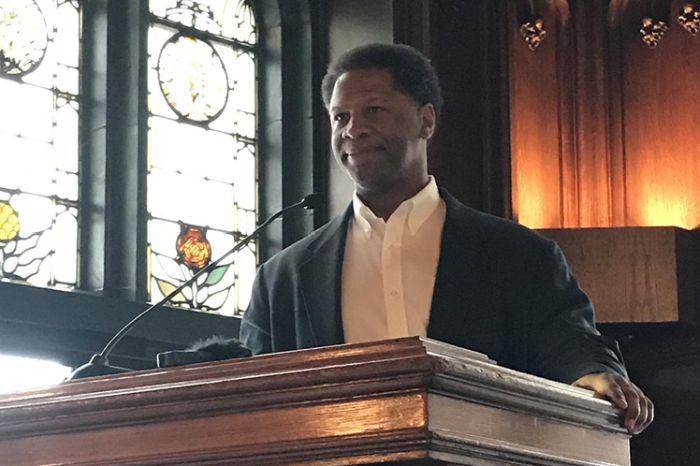
The health professional highlighted the way in which the Cuban medical system focuses on the human being as the most important thing
A visit to Cuba in 2015 and the concern about infant mortality rates in a Chicago community led US doctor Robert A. Winn to become interested in working with Cuban specialists.
Press reports from both countries informed in January that the University of Illinois at Chicago (UIC) and the Ministry of Public Health of Cuba would start collaboration in health.
Winn, associate vice-chancellor for community health practices and director of the Cancer Center of the academic institution, recalled in dialogue with Prensa Latina that last year he traveled to the Caribbean nation to participate in the International Cuban Health Convention 2015.
Upon his return to the United States, and concerned about infant mortality rates in areas of Chicago, he decided to address this issue and the disparity in health care with specialists inside and outside the United States.
In this way, the idea of exchanging experiences with Cuban experts arose, and after contact at the beginning of this year, last August, four professionals from the island arrived to study the risk factors. Such work, said the doctor, is currently performed in one of the most complicated communities in the country and probably the country, Englewood.
When searching for the name of this neighborhood on the Internet, almost all the references are related to the high levels of violence that exist there, where most of the population is African-American.
But often the red press conceals a much more complex reality: according to a UIC study, 30 percent of Afro-descendant families in Chicago live below the poverty line.
Such research found, among other results, that racial and ethnic disparities persist in health indicators such as infant mortality and low birth weight, results often associated with socioeconomic status and access to prenatal care.
In this context, professionals from both countries have formed a team that Winn qualified as a large family, which seeks to characterize and deepen the causes that affect maternal and child health from an integral point of view.
When asked about the contribution made by Cuban experts, Winn highlighted the way in which the island’s medical system focuses on the human being as the most important thing.
It is the spirit of the heart, the desire to really make a difference not only for some people but for all, I believe that there is the driving force of success in Cuba in this regard, he said.
We are learning that it is very significant to have an organized structure and an operational system, he added, making reference to the study that intends to go beyond the conclusions based only on statistical data to focus on a comprehensive analysis of the health situation.
He emphasized that, on the other hand, Cuban professionals with this experience have the possibility of approaching technological advances, opportunities related to the Academy, and the knowledge of a different environment.
For the doctor, it is necessary to understand that money and technology alone are not the answer to health care issues. ‘It is also about human resources, the link with communities,’ he said.
He made reference to other areas in which Cuba and the United States could have opportunities for exchange, and mentioned the vaccines, cancer and diabetes treatments, working with data and how to make them functional, among other topics.
According to the academic, if the strengths of both sides are combined, they could bear fruit.
Establishing such bridges would have a major impact for the benefit of global health, he said.
 Escambray ENGLISH EDITION
Escambray ENGLISH EDITION





Escambray reserves the right to publish comments.